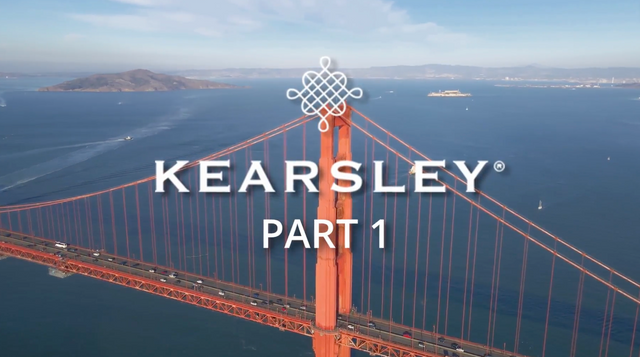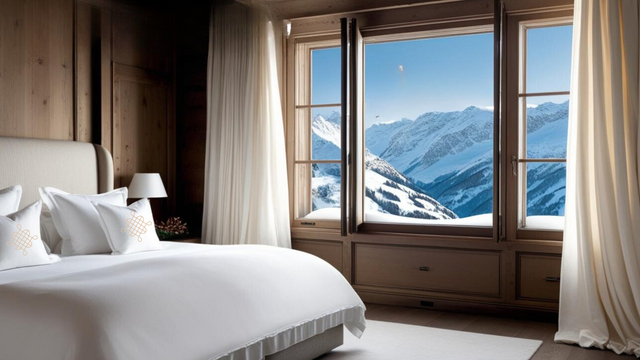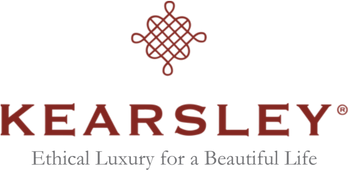Bamboo sheets are often marketed as the ultimate sustainable choice. On the surface, the claims sound great—bamboo grows quickly, is renewable, and creates soft fabrics. But when you look deeper, bamboo’s environmental and ethical realities pale in comparison to Kearsley’s carefully sourced hemp, Belgian linen, and cotton textiles. These materials are not only environmentally superior but also meet the highest safety and luxury certifications, including OEKO-TEX Standard 100 Class 1 and the OEKO-TEX Standard Luxury where applicable.
The Real Costs of Bamboo
While bamboo grows rapidly and is technically renewable, turning it into soft sheets is an intensive, chemically heavy process. Most bamboo sheets are made from viscose (rayon), which involves dissolving the bamboo pulp using toxic chemicals like sodium hydroxide and carbon disulfide. Even "eco-friendly" bamboo lyocell still requires significant energy and chemical inputs.
The issues don’t stop there:
- Water Use: Bamboo plantations often require irrigation in non-native regions, despite claims of water efficiency.
- Chemical Dependence: Transforming bamboo into fabric is far from "green," with little transparency in how waste is managed.
- Ecosystem Disruption: Monoculture bamboo farming can replace biodiverse habitats, reducing ecological health.
- Limited Durability: Bamboo fabrics often pill and wear out faster, leading to more frequent replacements.
Kearsley’s Superior Textiles: Hemp, Belgian Linen, and Cotton
At Kearsley, we source hemp, Belgian linen, and cotton fabrics that meet the highest certifications, including OEKO-TEX Standard 100 Class 1, ensuring low or no chemical use. Many of these materials also meet the OEKO-TEX Standard Luxury, the newer benchmark for premium textiles that guarantees environmentally responsible, luxurious-quality fabrics.
Here’s how our textiles outperform bamboo:
Hemp: Sustainability Without Compromise
- OEKO-TEX Certified: Kearsley’s hemp fabrics meet OEKO-TEX Standard 100 Class 1 standards, ensuring they’re free from harmful substances and safe for even the most sensitive skin.
- Soil Restoration and Multi-Cropping: Hemp is a regenerative crop that detoxifies soil through phytoremediation and enriches it for future plantings. With a growth cycle of just 90-120 days, hemp can be rotated up to three times per year.
- Minimal Resource Needs: Hemp requires little water and no pesticides, making it a true low-impact crop.
- Durability: Hemp sheets are incredibly strong and long-lasting, softening over time while retaining their structure.
- Carbon Sequestration: Hemp absorbs large amounts of CO₂ during its growth, helping combat climate change.
Belgian Linen (Flax): Timeless Elegance
- OEKO-TEX Certified: Kearsley’s Belgian linen fabrics are also certified to OEKO-TEX Standard 100 Class 1 and many qualify for OEKO-TEX Standard Luxury, combining exceptional quality with environmental safety.
- Rotation Crop for Soil Health: Flax farming improves soil fertility and biodiversity as part of a sustainable crop rotation system.
- Low Water Use: Belgian linen relies almost entirely on rainwater, requiring no irrigation even in drier years.
- Eco-Friendly Processing: The process of turning flax into linen is energy-efficient and waste-free, with minimal chemical inputs.
- Timeless Durability: Linen softens with every wash while maintaining its strength, making it a true investment for generations.
Kearsley’s Cotton: The Gold Standard
- OEKO-TEX Certified: Kearsley’s Giza 87 and extra-long-staple Egyptian cotton meet both OEKO-TEX Standard 100 Class 1 and OEKO-TEX Standard Luxury. This ensures they are free of harmful substances and meet the highest standards of comfort and durability.
- Sustainable Farming: Grown in the fertile Nile Delta, Giza 87 cotton uses natural irrigation and traditional farming techniques, preserving soil health and biodiversity.
- Luxurious Quality: Known for its smooth, buttery feel, our cotton is strong, long-lasting, and resistant to pilling, reducing waste and extending the life of your bedding.
Bamboo vs. Kearsley: A Sustainability Comparison
| Fabric | OEKO-TEX Certification | Water Use | Chemical Use | Carbon Footprint | Durability | Soil Health | Growth Cycle |
|---|---|---|---|---|---|---|---|
| Hemp | 100 Class 1 + Luxury | Minimal | Low to Nil | Carbon Negative | Long-lasting | Detoxifies and Enriches | 3 harvests/year |
| Belgian Linen | 100 Class 1 + Luxury | Very Low (Rainfall) | Low to Nil | Carbon Neutral | Timeless | Enriches Soil | Rotational Crop |
| Kearsley’s Cotton | 100 Class 1 + Luxury | Moderate (Irrigation) | Low to Nil | Low | Exceptional | Maintains Fertility | 1 harvest/year |
| Bamboo | None or Limited | High (Plantations) | High (Viscose Processing) | High (Energy Intensive) | Shorter Lifespan | Neutral or Disruptive | 3-5 years to maturity |
At Kearsley, we are committed to creating products that honor both the planet and our customers. With hemp, Belgian linen, and cotton certified to the highest standards, including OEKO-TEX Standard 100 Class 1 and Standard Luxury, we ensure our textiles are:
- Safe and Sustainable: Free from harmful chemicals and crafted using eco-conscious methods.
- Long-Lasting Luxury: Designed to last a lifetime, reducing waste and delivering timeless comfort.
- Environmentally Regenerative: From hemp’s soil-cleaning properties to flax’s role in crop rotation, our materials actively support healthy ecosystems.
Why Bamboo Falls Short
While bamboo seems like an easy choice for sustainability, its chemical-heavy processing, high water use, and limited durability reveal a less-than-green reality. Kearsley’s hemp, Belgian linen, and cotton, on the other hand, offer true eco-luxury and uncompromising quality.
Shop Kearsley to experience the difference for yourself. Because true luxury shouldn’t come at the expense of the planet.
More stories

Behind the Scenes at The Gentry Show: A Journey into the World of Linens



